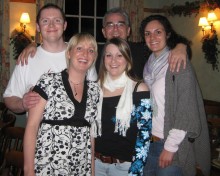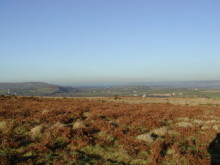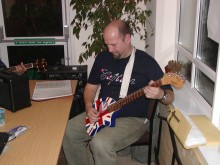 Ten years ago today I launched these words into the virtual ether:
Ten years ago today I launched these words into the virtual ether:
‘I’d like to welcome you to Recovery Stories, a new website that is focused on helping individuals and families recover from serious problems caused by drug and alcohol use.
We’ll not just be trying to help people directly affected by drug and alcohol addiction, but also help people whose lives have been indirectly affected by the substance use problems of a loved one. Family members and friends also need to find recovery.
One important feature of this website is that it will carry the ‘voice’ of recovering people. Solutions to serious substance use problems are manifested in the lives of millions of people who are in long-term recovery. These lived solutions can provide important insights into principles and practices that underlie recovery from addiction.

 Development of a strong online presence was one of my key aims with Wired In (initially known as WIRED). With the help of website developer Ash Whitney, I launched Daily Dose, a drugs and alcohol news portal, in early 2001. This website was followed by substancemisuse.net—which contained sections for people suffering from substance use problems, practitioners, and members of the general public—and the news portal Drugs in Sport. We later built wiredinitiative.com, which focused on the range of work that Wired In was conducting. (1,036 words)
Development of a strong online presence was one of my key aims with Wired In (initially known as WIRED). With the help of website developer Ash Whitney, I launched Daily Dose, a drugs and alcohol news portal, in early 2001. This website was followed by substancemisuse.net—which contained sections for people suffering from substance use problems, practitioners, and members of the general public—and the news portal Drugs in Sport. We later built wiredinitiative.com, which focused on the range of work that Wired In was conducting. (1,036 words)
 In mid-June 2008, along with my Wired In colleagues Lucie James and Kevin Manley, I visited the North-West of England, where there was a fast-growing Recovery Movement.
In mid-June 2008, along with my Wired In colleagues Lucie James and Kevin Manley, I visited the North-West of England, where there was a fast-growing Recovery Movement. In October 2006, I took early retirement from my Professorial position in the Department of Psychology at Swansea University in South Wales, in part to focus full-time on developing our Wired In grassroots initiative. In January 2008, I settled down to develop a new Wired In strategy, as well as write a Wired In Charter, which was published in April. I wanted people to get a better feel for what we were about. Here is that Charter:
In October 2006, I took early retirement from my Professorial position in the Department of Psychology at Swansea University in South Wales, in part to focus full-time on developing our Wired In grassroots initiative. In January 2008, I settled down to develop a new Wired In strategy, as well as write a Wired In Charter, which was published in April. I wanted people to get a better feel for what we were about. Here is that Charter: In a previous blog post in this series, I described how Claire Brown of Drink and Drugs News (DDN) commissioned me to write articles for the magazine that she and Ian Ralph had launched. Here is an article I wrote on WIRED (later called Wired In) that was published in that very
In a previous blog post in this series, I described how Claire Brown of Drink and Drugs News (DDN) commissioned me to write articles for the magazine that she and Ian Ralph had launched. Here is an article I wrote on WIRED (later called Wired In) that was published in that very  I’ve just been reading through a chapter I have written for a book I am working on, tentatively called Those Who Came Before: A Personal Journey Into Understanding Drug Addiction and Addiction Recovery. In the chapter, I describe how I started writing for the magazine Drink and Drugs News in late 2004. I wrote a series called Background Briefings for nigh on four years. Here’s how it all started:
I’ve just been reading through a chapter I have written for a book I am working on, tentatively called Those Who Came Before: A Personal Journey Into Understanding Drug Addiction and Addiction Recovery. In the chapter, I describe how I started writing for the magazine Drink and Drugs News in late 2004. I wrote a series called Background Briefings for nigh on four years. Here’s how it all started: I left Ash Whitney’s house in Cilfrew, and headed to Gower (a peninsula just west of Swansea) where I had rented a house in Llangennith for my two boys (Ben and Sam) and myself for four nights. Llangennith is a village on the west coast of Gower which is close to Rhossili Beach, a beautiful surfing beach. I spent my first year renting a house in the village when I took up a position in the Psychology Department at the University of Wales, Swansea in 1992. I ended up living on Gower for 14 years and had such a great time there. I consider Gower to be my spiritual home.
I left Ash Whitney’s house in Cilfrew, and headed to Gower (a peninsula just west of Swansea) where I had rented a house in Llangennith for my two boys (Ben and Sam) and myself for four nights. Llangennith is a village on the west coast of Gower which is close to Rhossili Beach, a beautiful surfing beach. I spent my first year renting a house in the village when I took up a position in the Psychology Department at the University of Wales, Swansea in 1992. I ended up living on Gower for 14 years and had such a great time there. I consider Gower to be my spiritual home. After leaving
After leaving 



